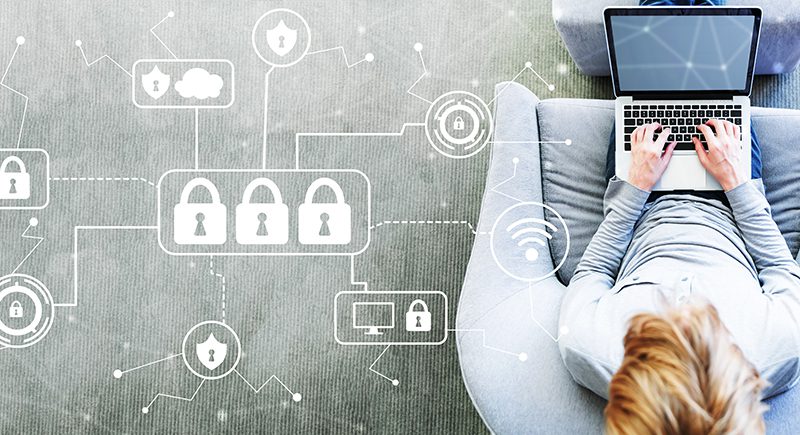
Cybercrime is all over the news lately. Reports of data breaches affecting hundreds of millions and sometimes even billions of customers and account holders have sadly become routine. While cyber-attacks on corporations and other large organizations tend to get most of the attention, financially successful individuals and families are equally appealing targets.
The unique and complex lives of successful individuals and families cause them to be the perfect prey for cyber-criminals. They rely on trusted employees and third parties to help care for their children, manage their finances, and maintain their homes, automobiles and valuable art collections, among other things.
Each of these touchpoints creates potential for exposure and increases the ‘attack surface’ for a cyber-adversary to focus upon. While trusted third parties themselves may not have malicious intent, they may nevertheless be the unknowing entryway into a private network or personal data.
For some, personal cyber-protection insurance is the right solution. Insurers who have deep experience in this area are in a position to provide advice on best practices and other sensible defensive measures to make one a less likely target.
The Pathways to Exposure
Let’s consider the various pathways through which cyber threats occur. They can happen through:
-
Social Engineering – The act of obtaining personal information such as birth date, address, mother’s maiden name, banking institution, or travel plans to aid in an attack against an individual.
-
Phishing – a form of social engineering attempting to trick victims into revealing confidential information
-
Spear Phishing – a tactic that focuses on a select few targets, often just a single, high-net-worth individual.
-
Home Networks – most home networks fall short to having their data properly secured
-
Public Networks – Public and open Wi-Fi hotspots are inherently unsecure, even the ones that require a password to access
-
Third Parties – assistants, employees, financial advisors with access to your systems, home or assets.
The impact of cyber-crimes can be devastating. The potential financial losses are only the most obvious ones. But security breaches can also lead to losses of valuable intellectual property and devastating attacks to one’s personal and/or professional reputations.
How to Protect Yourself
You have probably heard or read about the various methods for protecting yourself, but let me restate them anyway. You need strong passwords (at least a dozen characters, including numbers, symbols, and both capital and lower-case letters) and multifactor authentication, meaning providing at least two pieces of personally identifying information. You should avoid using public Wi-Fi networks, which are notoriously lacking in safeguards, and protect your home network with some form of security.
Finally, there are insurance solutions to consider. Personal cyber protection can be purchased from several carriers that can help minimize your out-of-pocket costs and provide assistance to help you recover when a cyberattack occurs. Coverage is available for:
-
Cyber extortion and ransomware
-
Cyber financial loss
-
Cyberbullying
-
Cyber disruption
-
Cyber breach of privacy
In the end, the greater your financial resources are and the larger your network is, the higher the likelihood is that you will become vulnerable to a cyberattack. And while defending against such digital incursions requires constant vigilance, the unhappy reality is that criminals only need to be successful once in order to cause damage. Don’t you deserve some help?
Want to learn how to protect you and your family from cyber crimes? Call us today at 216-350-5050.
